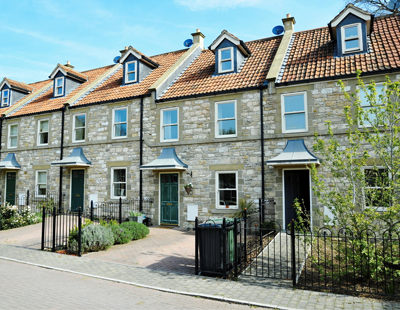There has been a dramatic fall in the number of cash buyers in London over the last year, according to Apropos by DJ Alexander.
The property management company found that the number of buyers purchasing in cash in the capital has fallen considerably, down by 19.8% between 2017 and 2018, with steep falls also witnessed in the East of England (14.5%) and the South East (14.3%).
Over the same period, average prices for cash sales in London also dropped, albeit only declining by 0.7%.
Falls in the volume of cash buyers were recorded in all countries of the UK, with England witnessing a 13.3% drop, while in Wales there was a 6.6% fall and in Scotland a 2.9% one.
All of England’s main regions have seen a loss of cash buyers, with numbers in the South West falling by 12.9%, the East Midlands down by 12.5%, Yorkshire dropping by 12.1%, the North East declining by 11.6%, the West Midlands dipping by 10.7% and the North West falling by 10%.
This comes at a time when mortgage volumes have declined across most of the UK, but by much smaller margins.
“It is clear that cash buyers are viewing property investment as more of a risk due to the uncertainties caused by Brexit, the direction of the economy, and more stringent taxation and regulation on property investment,” David Alexander, joint managing director of Apropos by DJ Alexander, said.
“Cash investors have many options and these figures would indicate that property appears to be taking a back seat for the moment.”
With London, as has been well-documented, undergoing a prolonged slump in prices, Alexander said it is only natural that many investors will be put off property if values are to remain static for a year or two.
“There will almost certainly be better returns to be made elsewhere,” he added. “An overheated market is rarely one which produces profit.”
Despite this, Alexander also stressed that ‘the shrewd investor’ will also recognise that all markets bottom out at some stage and ‘investing at the bottom of a cycle is the surest way of making the greatest profit’.
“The only difficulty is in knowing precisely where the bottom of the market is!” he continued. “Deciding when to make that leap is where sound financial judgement kicks in. There will be few who doubt that in the next five years London and the South East will again be areas where property investment produces good returns and long-term stability.”
Alexander said there is an argument for simply shifting location in property investment from one part of the country to another, with Scotland, for example, not seeming to have experienced the exodus of cash buyers - indicating a positive view of the property market north of the border.
He also said that cash buyers leaving London and the South East will be able to buy a lot more for their money in many other parts of the country, a trend that we may see more of in the months and years to come.
“With so much political and economic uncertainty it is inevitable that investors will be wary of investing in property and other asset classes,” Alexander concluded. “However, the more entrepreneurial individuals and organisations will undoubtedly see this as an opportunity and invest strongly. There is no doubt that property remains a sound long-term investment and that the ebb and flow of the market is simply a natural response to uncertain times.”









.png)


.jpg)
.png)

.jpg)
.png)
.png)
.png)
.jpg)

%20(002).png)

.png)













Join the conversation
Jump to latest comment and add your reply
Not just the Cash Buyers, but Private sector Landlord numbers are decreasing with many selling up to leave the sector due to private renting becoming a High Risk, Low/Nil & trending to Negative ROI due to laws favouring scrupulous Tenant’s.
LL’s and agents had some financial security and could recover costs by charging fees, increasing rents, shorter court hearing waiting periods for eviction of bad tenants, that’s all changed.
LL’s can not ask for sufficient deposit to cover an extensive property damage by tenant, have to pay out of own pocket for referencing, govt wants to cap rental amounts, it takes nearly 10 months to evict a Lodger on licence-linger for a tenant costing time, stress and high legal fees.
Somehow it doesn’t seem to be an attractive investment for any Cash or even BTL buyer due to High financial risks involved and at least 17 years (20+ in some places) to get any returns.
If Labour wins in general elections in between those 20 years then the property would probably be taken from LL or ROI period will increase to 40 years!
Here is hoping for Brexit or another party to deliver no Brexit, win GE and make PRS a prized investment sector.
The last comment above regarding Labour (Corbyn) coming to power is the biggest disincentive to private investors in property as he has plans to tax them out of existence. Read the paper “Land for the Many” to see how much the State would take from those investing (already taxed) funds in property. If we were to get a Labour Government it would rapidly destroy the housing market, assuming the above paper became policy. Very worrying times for those with pensions linked to property investment!
David Renton Rose
I agree re Pensions linked investment worries.
Many corporate funds including some of People’s Pension providers have investments linked to Property.
Please can you share the url/link of ‘Land for the Many’ paper. Thank you.
Please login to comment